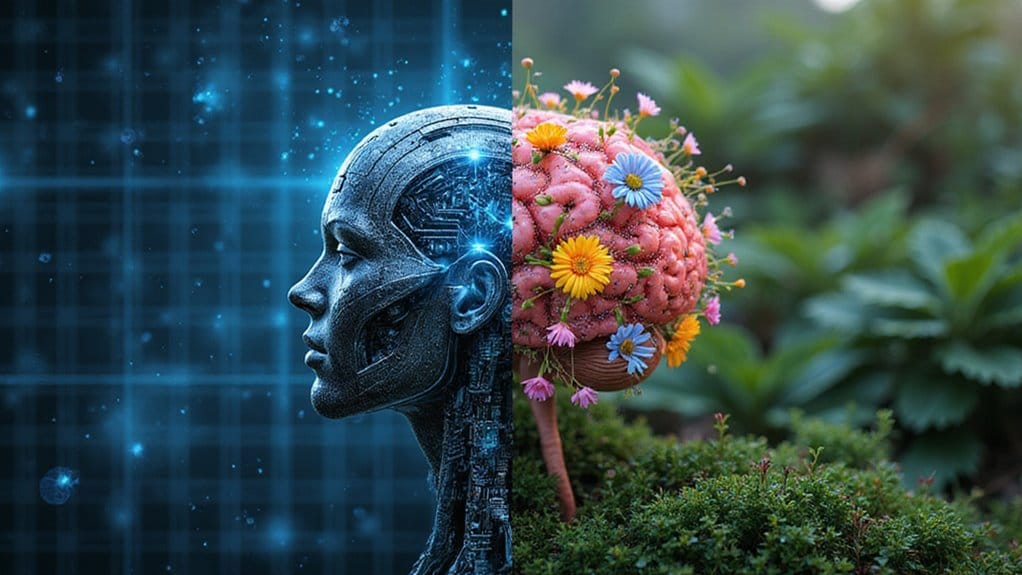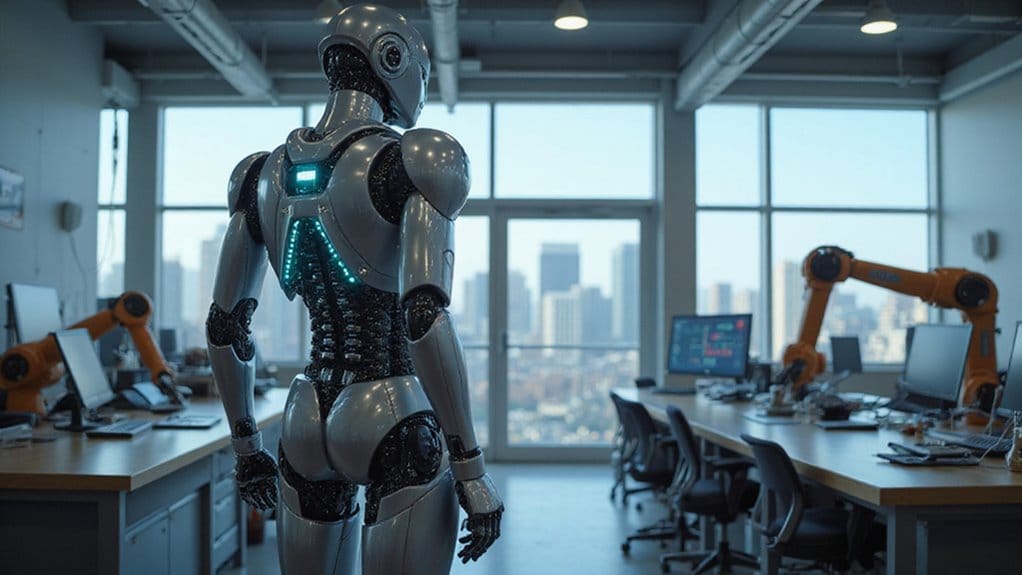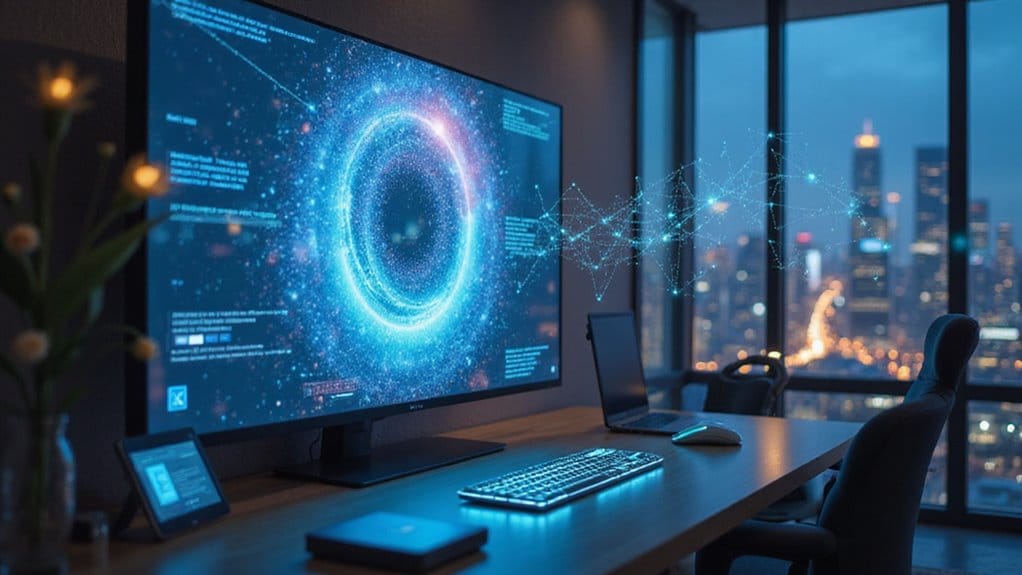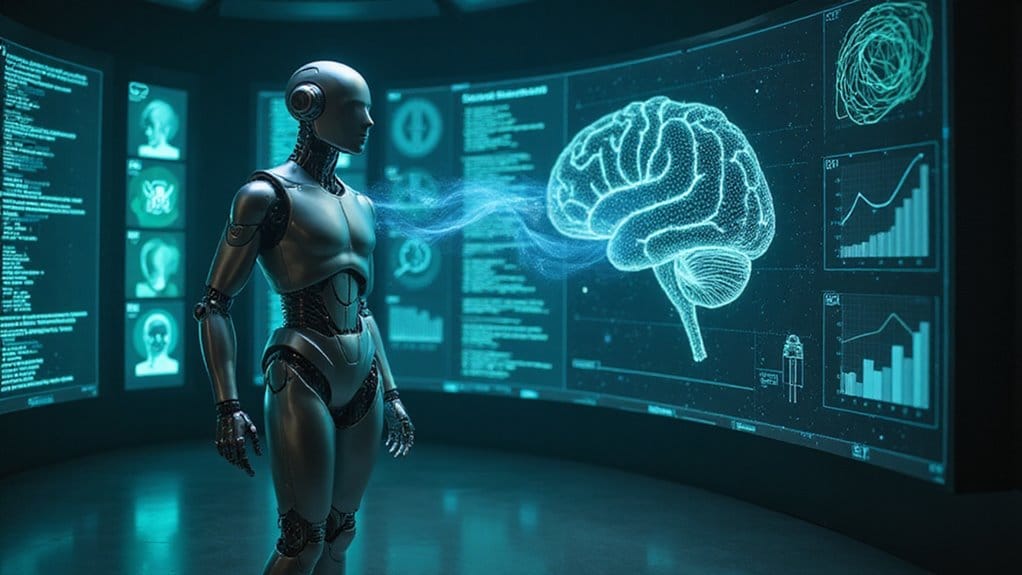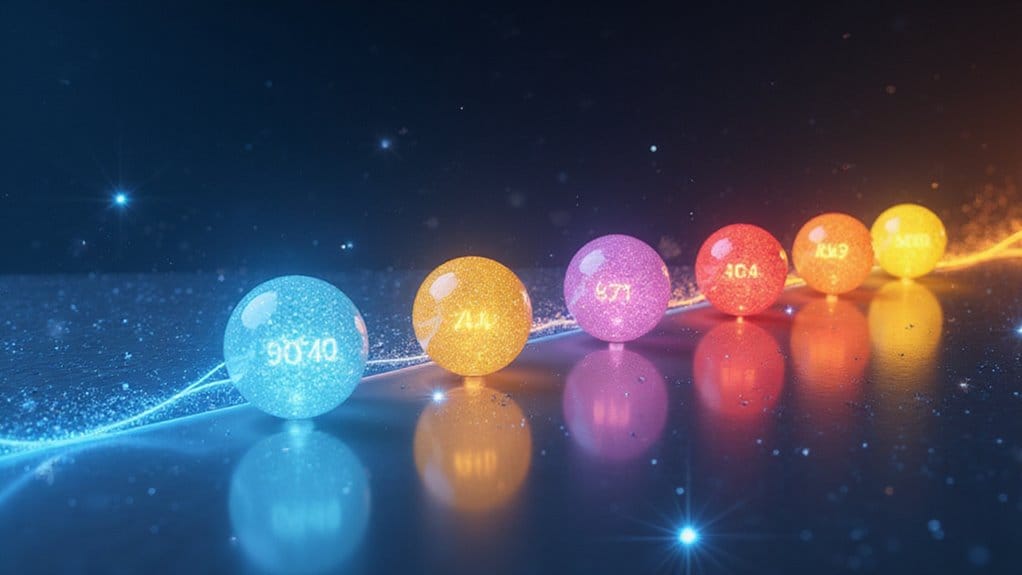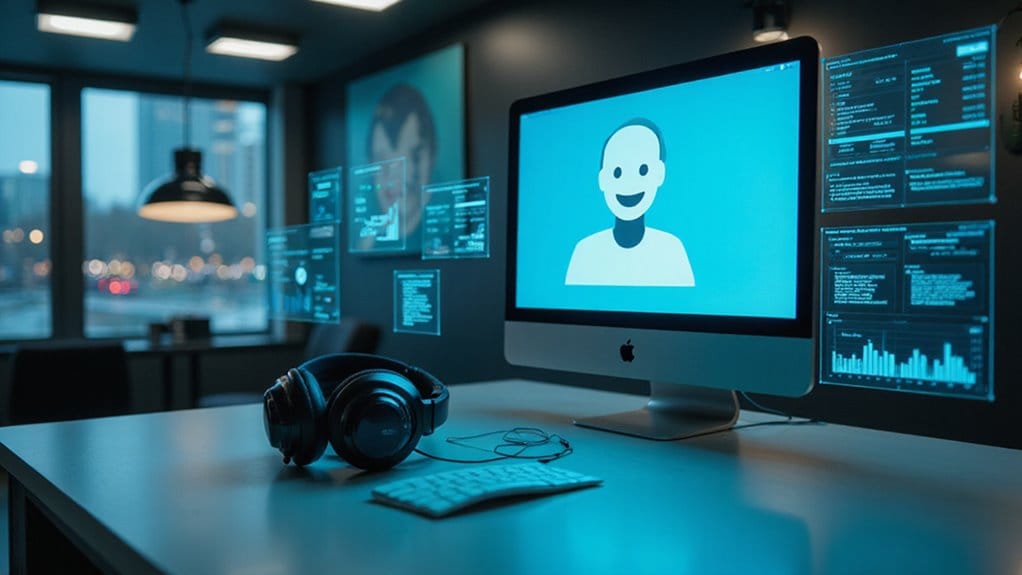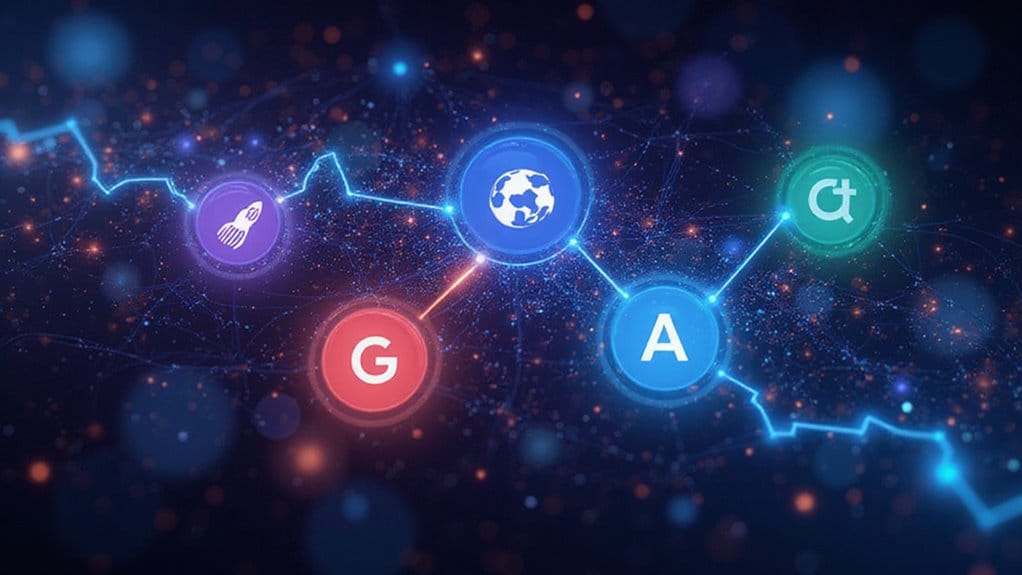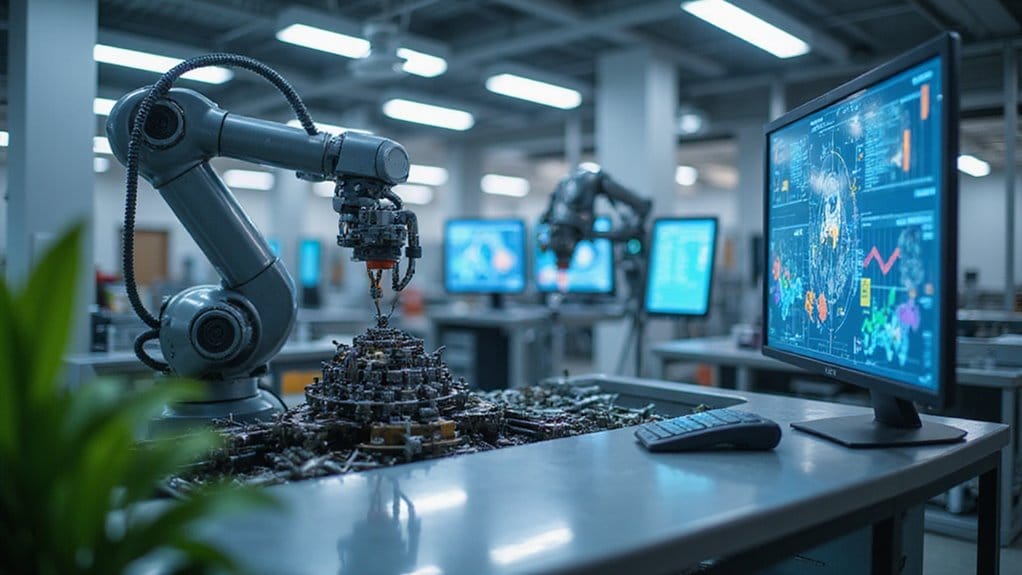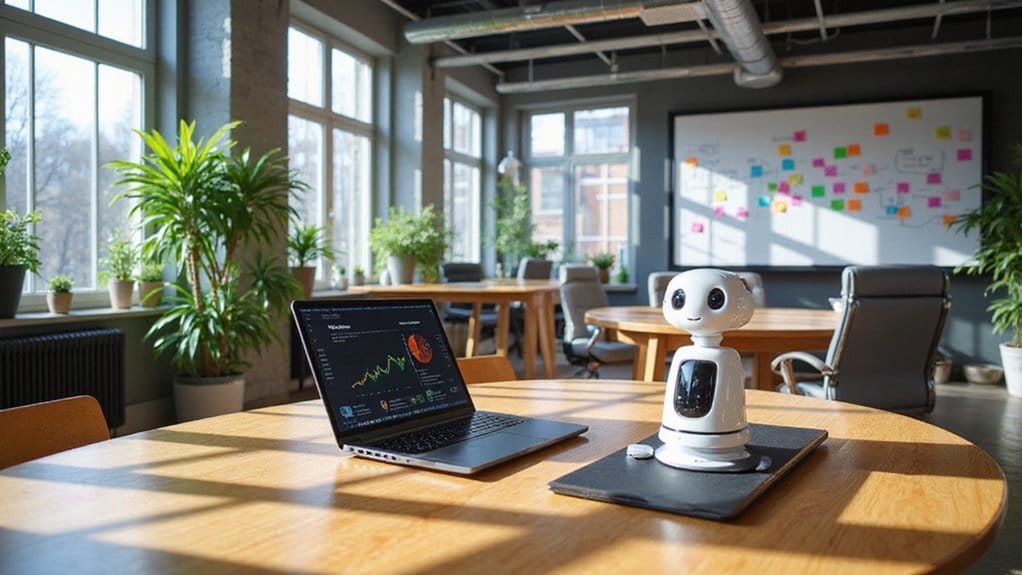AI and human intelligence are like apples and oranges. Sure, both can solve problems, but humans have that magical ingredient—creativity. Watch out! While humans adapt and learn fluidly, AI needs heaps of data to process the simplest concept. Add emotions and intuition to the mix, and you see humans make decisions in context, unlike AI’s cold calculations. Want more juicy insights about these differences? Stick around, there’s plenty more to uncover!
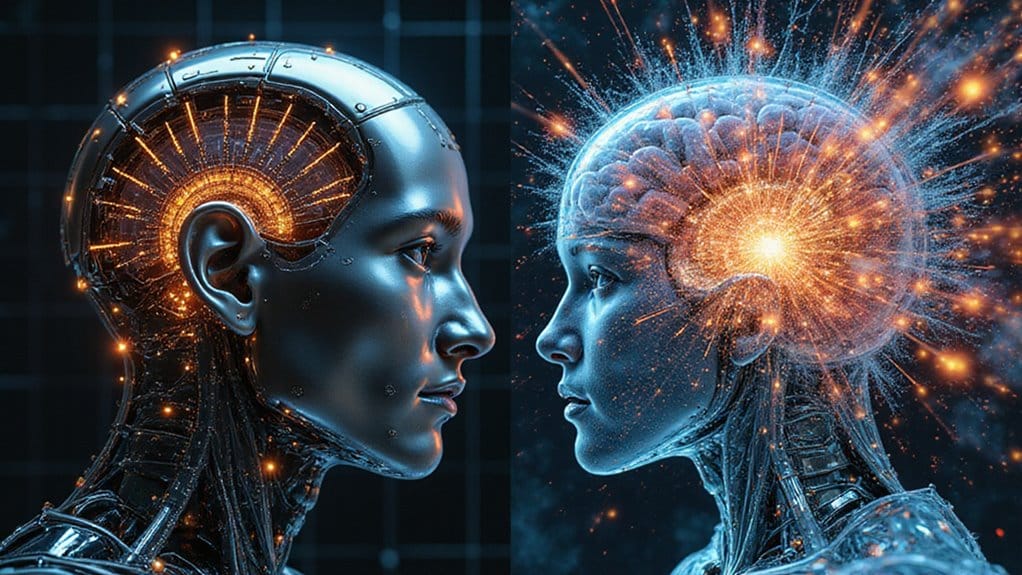
In a world brimming with technology, understanding the differences between artificial intelligence (AI) and human intelligence is essential—yes, essential! The distinctions between these two forms of intelligence shape our lives in ways we might not even realize.
AI is a creation of humans, designed to perform tasks like problem-solving and decision-making. But hold on! AI has limitations. It lacks the spark of originality and self-awareness, leaving it short in areas like emotional understanding and creativity.
Let’s explore human creativity, shall we? Humans can dream up new ideas and art forms, while AI merely rearranges existing data. Think of it this way: if AI is the remix artist, humans are the original musicians.
When it comes to learning processes, humans have the upper hand. They learn from experiences and adapt quickly, excelling in one-shot learning. AI? It plays catch-up, needing heaps of data to understand anything, making its learning process a bit clunky. This reliance on data exemplifies Weak AI, which is limited to specific tasks without the ability to generalize. Additionally, humans can effectively generalize from few samples, highlighting a fundamental distinction in learning processes.
Now, let’s talk decision-making. Human decisions are a beautiful mess, influenced by emotions and personal experiences. Ever made a choice while hangry? That’s human intuition at work!
In contrast, AI’s decisions are cold, calculated, and devoid of emotional nuance. Risk assessment? A cakewalk for humans, who can weigh qualitative factors. AI sticks to numbers, often missing the bigger picture.
Why does this matter? Because the world is complex, and our decisions can be too. A simple algorithm can’t factor in moral dilemmas or the subtleties of life. Neither can AI grasp context like humans can.
Frequently Asked Questions
Can AI Feel Emotions Like Humans Do?
AI cannot feel emotions like humans, no matter how much it pretends.
While it excels at emotional recognition, analyzing facial expressions or text with impressive accuracy, this is just data crunching, folks!
Empathy simulation? Sure, it can mimic responses, but genuine connection? Not a chance.
Remember, interactions with AI can feel intimate but are ultimately hollow.
Stay aware, because relying on AI for emotional support might just lead to disappointment!
Is AI Capable of Creative Thinking?
Is AI capable of creative thinking? Well, sort of.
AI can assist in artistic expression and innovative problem solving, generating ideas based on patterns in data.
But hold your applause! It lacks true intuition and emotional depth, meaning it can’t feel the joy of creation like humans can.
Relying on algorithms, AI offers suggestions, but don’t expect it to replace your creative spark anytime soon.
How Does AI Learn From Experience?
AI learns from experience through machine learning, which relies on massive amounts of data, often called experiential data.
It’s like feeding a hungry brain information, but this brain can only munch on what you give it.
Supervised learning needs labeled examples, while unsupervised learning identifies patterns on its own.
Remember, without enough data, AI struggles!
What Are the Ethical Implications of AI?
AI ethics is a big deal, folks. First, think about moral responsibility—who’s accountable when AI messes up?
Then, privacy concerns crop up, especially when sensitive data is involved.
Don’t forget bias mitigation; if AI inherits biases, it just perpetuates unfairness.
So, as you engage with AI, demand transparency and advocate for ethical standards.
It’s not just tech; it’s about ensuring fairness and respect for human dignity.
Stay informed and proactive!
Can AI Make Decisions Without Human Input?
AI can’t make decisions without human input—sorry, not sorry!
While it can process tons of data for autonomous decision-making, it often misses the human touch.
You see, those pesky emotions and ethical nuances? Yeah, AI doesn’t get those.
So, before you hand over the reins completely, remember that human oversight is essential.
Trust us, you don’t want an algorithm deciding your next big move without a little human sanity check!
